5:30 PM Pacific – Reception
6:00 PM Pacific – Program
Paul Chrzanowski’s presentation explores “books that Shakespeare might have read.” He donated his collection of nearly 150 early English books to the UCLA William Andrews Clark Memorial Library. The earliest printed work is Cordyal of the four last and final things, a book printed in 1479 by William Caxton, England’s first printer. The donation includes early literary works by Geoffrey Chaucer, John Gower, John Lydgate, and William Langland; English translations of classical works; pre-Reformation Catholic treatises and English Bibles; English chronicles; Shakespeare source books; works by Shakespeare and his contemporaries; and a wide variety of books read by English men and women through the long 16 th century.
Through the period of interest—from Caxton to Shakespeare—England made the remarkable transition from a late medieval society and late-Middle English to a mercantile, sea-faring nation and the works of William Shakespeare. This transition is reflected in the books that were printed and read. Works of Catholic devotion change to the Bible in English and John Foxe’s Acts and Monuments. Chronicles remind readers of the 15 th -century War of Roses and extoll the glories of Queen Elizabeth’s reign. The modern novel begins to emerge through the works of George Gascoigne, William Painter’s translations of Italian novellas, and Robert Greene’s pastorals. English readers kept up with current events and learned new skills.
The collection includes copies of the second and fourth folio editions of Shakespeare’s collected plays (1632 and 1685); plays extracted from the first and third folios; Robert Allott’s England’s Parnassus (1600) with Shakespeare excerpts; and a quarto play, Parts 2 and 3 of Henry the Sixth (1619). The presentation is not focused on these works. Rather it introduces books on wide-ranging topics that illustrate readers’ interests at the time—highlighting from the collection books of importance, books of great rarity, books with special provenance, and oddities.
An in-person and virtual presentation by Paul Chrzanowski, book collector
* Co-presented and co-hosted by American Trust for the British Library and the Bibliographical Society of America
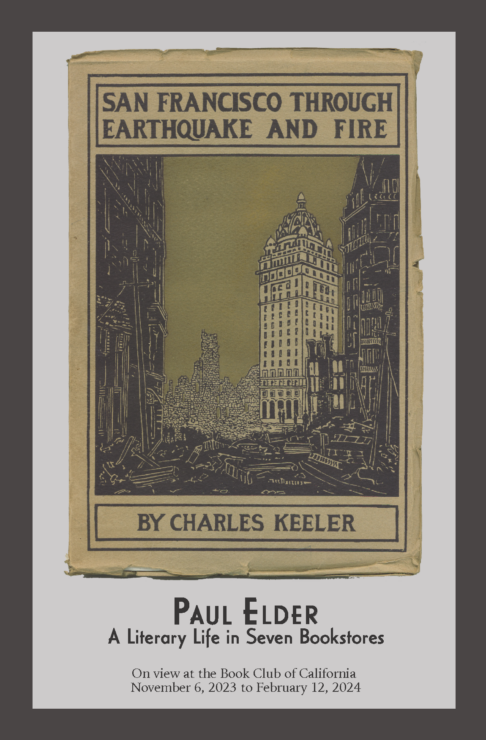
5:30 PM Pacific – Reception
6:00 PM Pacific – Program
The Blinn House | 160 N Oakland Avenue | Pasadena, California
After resigning from his sales position at William Doxey’s bookstore in San Francisco’s famous Palace Hotel in 1897, a young Paul Elder opened his own shop two blocks away. Elder’s goal was a bookstore with a carefully crafted ambience, reflecting his embrace of the California Arts & Crafts Movement. Elder’s own publications were often designed with the same Arts & Crafts aesthetic. This talk will present a tour of Elder’s San Francisco bookstores, as he persevered through the 1906 Earthquake and Fire, helped to revitalize downtown, and celebrated the Panama-Pacific International Exposition.
Exhibition opening with an in-person and virtual presentation by David Mostardi, book collector, curator, and historian

5:30 PM Pacific – Reception
6:00 PM Pacific – Program
After resigning from his sales position at William Doxey’s bookstore in San Francisco’s famous Palace Hotel in 1897, a young Paul Elder opened his own shop two blocks away. Elder’s goal was a bookstore with a carefully crafted ambience, reflecting his embrace of the California Arts & Crafts Movement. Elder’s own publications were often designed with the same Arts & Crafts aesthetic. This talk will present a tour of Elder’s San Francisco bookstores, as he persevered through the 1906 Earthquake and Fire, helped to revitalize downtown, and celebrated the Panama-Pacific International Exposition.
Exhibition opening with an in-person and virtual presentation by David Mostardi, book collector, curator, and historian
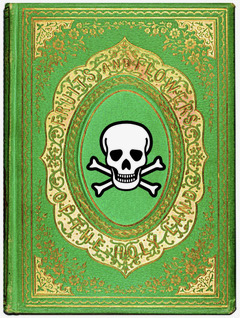
5:00 PM Pacific – Progran
The Poison Book Project investigates potentially toxic pigments used in the manufacture of Victorian-era bookcloth. Lead scientist Dr. Rosie Grayburn will situate the use of English bookcloth colored with highly poisonous emerald green pigment and other toxic pigments within a broader historical context; recommend safe handling and storage practices for emerald green bookbindings; and report on the Poison Book Project’s most recent findings.
A virtual presentation by Dr. Rosie Grayburn, Head of the Scientific Research and Analysis lab at Winterthur Museum, Garden and Library and founding co-chair of the Bibliotoxicology Working Group
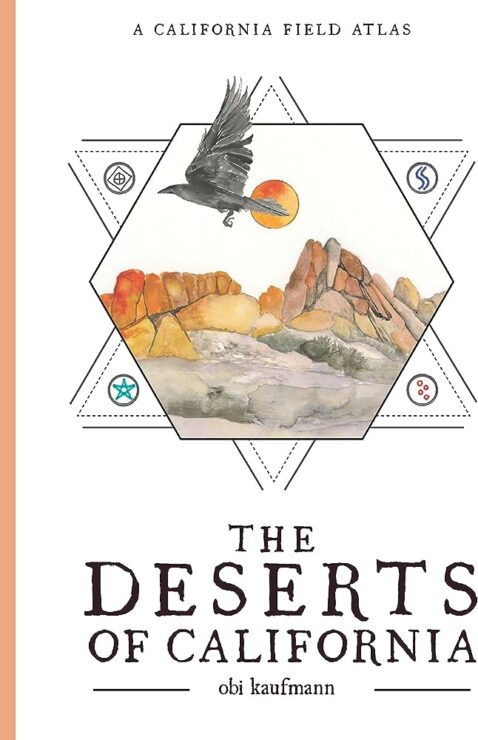
5:30 PM Pacific – Reception
6:00 PM Pacific – Program
With climate breakdown heating up and desertification looming over the horizon, Obi Kaufmann leads curious adventurers on a voyage into the sage-and-ocher landscapes of the American West’s world-famous desert regions this fall in his revelatory and sumptuously illustrated new volume The Deserts of California: A California Field Atlas. As philosophical as it is geophysical, this journey blends science and art in Kaufmann’s signature style to throw into relief ecological insights greater than either might yield alone. Through expressionistic mapmaking, wildlife renderings, and geographic conservation guides, Kaufmann explores the marvels of and threats to these resilient yet sensitive ecosystems.
“The Deserts of California presumes that hope, like healing, relies on time,” writes Kaufmann. “If there is time, there is hope. Although every desert habitat type is threatened, very little of it is yet extinct. Despite the complexity of the threat, everywhere there is precedent for resurgence.”
Of a piece with his best-selling books The Forests of California (2020) and The Coasts of California (2022), The Deserts of California (October 2023) rounds out Kaufmann’s expansive California Lands Trilogy. Individually and collectively, these volumes set out to transform entrenched colonialist attitudes toward the American West, and transform our concept of nature from a resource for extraction to a shared and cherished inheritance.
An in-person and virtual presentation by Obi Kaufmann, author, illustrator, and naturalist
5:30 PM Pacific – Reception
6:00 PM Pacific – Program
Before there was such a thing as “California,” there were the People and the Land. Manifest Destiny, the Gold Rush, and settler colonial society drew maps, displaced Indigenous People, and reshaped the land, but they did not make California. Rather, the lives and legacies of the people native to the land shaped the creation of California. We Are the Land is the first and most comprehensive text of its kind, centering the long history of California around the lives and legacies of the Indigenous people who shaped it. Beginning with the ethnogenesis of California Indians, We Are the Land recounts the centrality of the Native presence from before European colonization through statehood—paying particularly close attention to the persistence and activism of California Indians in the late twentieth and early twenty-first centuries. The book deftly contextualizes the first encounters with Europeans, Spanish missions, Mexican secularization, the devastation of the Gold Rush and statehood, genocide, efforts to reclaim land, and the organization and activism for sovereignty that built today’s casino economy. A text designed to fill the glaring need for an accessible overview of California Indian history, We Are the Land will be a core resource in a variety of classroom settings, as well as for casual readers and policymakers interested in a history that centers the native experience.
An in-person and virtual presentation by William J. Bauer Jr., enrolled citizen of the Round Valley Indian Tribes, author, and Professor of History at the University of Nevada, Las Vegas
* Co-presented and co-hosted by LITQUAKE
5:30 PM Pacific – Reception
6:00 PM Pacific – Program
As a photographer in the fifty-seventh year of his serious effort, David Wing will describe how his camera found its subjects, what his working mind is like today, and how his accumulated work has “aged” in his intellect and in his heart.
Accompanied by a large number of slides, Wing will talk in detail about how his pictures come to light, and how his many recent books came to be.
Wing’s talk will try to show how his editing seems to work – he notes retrospective relationships among his photographs, and as these become more apparent, they seem to find independent coherence. As this happens, sequences, exhibitions, and the monographs take shape.
An in-person and virtual presentation by David Wing, photographer and teacher
Neon: A Light History
Wednesday, October 11, 2023, 6-7:15 PM (Pacific)
| In-Person Presentation
5:30 PM Pacific – Reception
6:00 PM Pacific – Program
The Blinn House | 160 N Oakland Avenue | Pasadena, California 91101
Is it possible that (once again) everything we know is wrong? Well, in regards to the history of neon, this may well be the case. Dydia DeLyser and Paul Greenstein have penned a brief, but concise history of the neon sign beginning at the beginning, and covering scandals, murder, fascists, and forgotten inventors. A full-color, lavishly illustrated electrical bodice ripper, aficionados of neon will find this an indispensable “bible” to the history of their favorite collision of art and commerce.
Revealing neon signs as active agents in sweeping cultural, economic, and political changes nationwide, DeLyser and Greenstein introduce readers to a compelling cast of characters, many of whom, they show, continue to keep neon vibrant today. Taking readers inside the signs themselves, the authors show how each sign, whether historic or contemporary, is made by skilled hands—today just as they were over one hundred years ago.
Drawing from over a decade of in-depth archival and ethnographic research as well as more than four decades of experience in the sign industry, DeLyser and Greenstein use Los Angeles—not New York or Las Vegas—as focal point, showing how neon signs have catalyzed urban change, and how they continue to hold appeal for our changing communities—developing with the automobile and car-and-consumer culture in the twentieth century, expanding from cities to towns, and along highways to remote roadside outposts. From the earliest luminous tubing in the 1890s to the artistic creations of today, from community-funded restorations of historic signs to ordinary-seeming business signs that have become community icons, DeLyser and Greenstein show how, just as neon signs lit our past, they can now light our shared future.
An in-person presentation by Dydia DeLyser, author and Associate Professor of Geography at California State University, Fullerton, and Paul Greenstein, author and neon light professional
5:30 PM Pacific – Reception
6:00 PM Pacific – Program
The saying goes, “Freedom of the press is guaranteed only to those who own one” but what if the community’s words could be printed and freely shared…. Thea Sizemore of Kavamore Press is doing just that.
Join us for an uplifting talk with Thea Sizemore about a social print project that is geared toward elevating the voices of the community. The project began early in the pandemic, providing an immediate and meaningful social justice service for the general public though protest poster production and distribution. A neighbor gifted a defunct newspaper box which was then up-cycled for the project and “Fresh Prints” Box was born. What happened after that is the beauty of human nature…. connection at a distance, community growth through the power of the press.
Using traditional equipment from the 1900s, hand set type and ink on paper, Sizemore has been able to build a new kinda of “social media” that is tethered to the rich history of the printing press. Sizemore will show examples of posters, discuss working methods and most importantly share how interactions with strangers brought light to a dark pandemic period and started a long term art practice.
An in-person and virtual presentation by Thea Sizemore, letterpress printer, artist and instructor
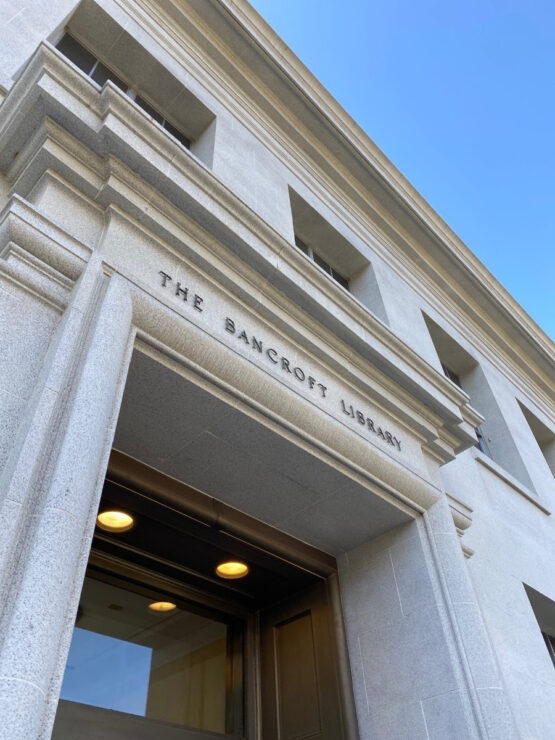
5:30 PM Pacific – Reception
6:00 PM Pacific – Program
Historian, writer, and collector Hubert Howe Bancroft sold his expansive collection of research materials on the history of Western North America to the University of California in 1905, thus establishing the eponymous library as a center of historical research and scholarship on Western Americana. This presentation explores over a hundred years of collecting at The Bancroft Library, from the library’s Valencia Street origins in San Francisco to its present moment on the University of California, Berkeley campus.
An in-person and virtual presentation by Kate Donovan, Director of The Bancroft Library & Associate University Librarian for Special Collections at University of California, Berkeley
* Co-presented and co-hosted by the Northern California Chapter of the Antiquarian Booksellers’ Association of America
5:30 PM Pacific – Reception
6:00 PM Pacific – Program
The Blinn House | 160 N Oakland Avenue | Pasadena, California 91101
Collecting more than 200 stunning photographs in one volume, A Country Called California: Photographs 1850s to 1960s traces the development of the Golden State from the nineteenth century on, through to its emergence as the fifth-largest economy in the world—all as seen through the eyes of photographers whose names are synonymous with fine art photography: Carleton E. Watkins, Dorothea Lange, Eadward Muybridge, Will Connell, Edward Weston, Max Yavno, A.C. Vroman, Mabel Watson, Anne Brigman, and many more.
A Country Called California captures the light that has captivated every photographer’s eye, in a land so distinct and diverse it could be its own country.
An in-person presentation by Stephen White, author, collector, curator, and historian of photography
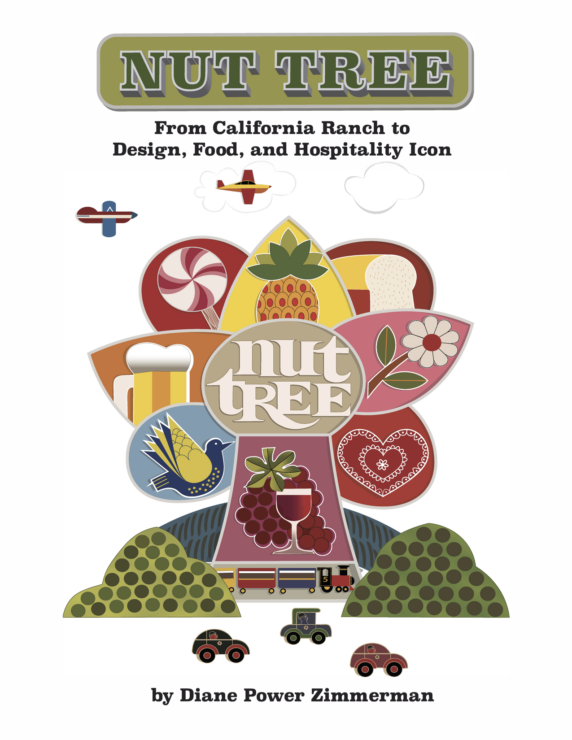
5:30 PM Pacific – Reception
6:00 PM Pacific – Program
Diane Power Zimmerman will share highlights from her book Nut Tree: From a California Ranch to a Design, Food, and Hospitality Icon. As the oldest granddaughter of the founders of a famous northern California roadside destination, Nut Tree, Power Zimmerman is uniquely poised to tell the story of a twentieth century icon.
The real story begins in 1921, when newlyweds, Helen and Bunny (Edward) Power took over a lease on a 150-acre California ranch and disaster struck. A late frost and early heat wave wiped out most of the fruit crop, and what was left, could no longer be shipped to the cities in the East. In desperation the couple set up a roadside stand to sell fruit and recapture some profits. They soon realized that American’s love affair with the automobile had just begun.
Helen and Bunny Power were in the right place and time to start a small farm-based restaurant that grew into a multi-million-dollar entertainment complex thanks to the advent of the automobile. While the history begins with the California Gold Rush, the main story focuses on the entrepreneurial successes of her family.
After the business closed, Power Zimmerman began to collect the stories tinged with nostalgia and the vivid memories proffered by fans. Power Zimmerman draws from family records, letters, newspaper clippings, photos, and the extensive archives of the Vacaville Museum to create a visually stunning book full of tales and photos chronicling the twentieth century. Power Zimmerman reflects on the writing experience and tells how a simple history took on a life of its own.
An in-person and virtual presentation by Diane Power Zimmerman, author and a fifth-generation member of the founding family of the Nut Tree
5:30 PM Pacific – Reception
6:00 PM Pacific – Program
Mariano Guadalupe Vallejo (1807–90) grew up in Spanish California, became a leading military and political figure in Mexican California, and participated in some of the founding events of U.S. California, such as the Monterey Constitutional Convention and the first legislature. Like many Mexican Californios he lost most of his land to squatter occupation and expensive legal proceedings during the first few decades of American rule.
A generation after the U.S. conquest of California, Mariano Guadalupe Vallejo set out to write the story of the land he knew so well. He aimed to dispel the romantic vision that was beginning to dominate the interpretation of the state’s history before the American conquest. Vallejo sought to correct misrepresentations of California’s past, which dismissed as insignificant the pre–gold rush Spanish and Mexican periods, and conflated them into one “Mission era.” He sought to convince the new rulers of the land in which he had been born that the Mexican people had laid the foundation for the California in which they were now all living.
To this end he spent more than a year and a half composing a five-volume history, which he titled Recuerdos. It is the most complete account of California before the gold rush written by someone who resided in California at the time.
Rose Marie Beebe and Robert M. Senkewicz have translated Vallejo’s Recuerdos and have brought to light a remarkable perspective, often firsthand, on important events in early California history. Their efforts restore a critical chapter to the story of California and the American West.
An in-person and virtual presentation by Rose Marie Beebe, professor emerita of Spanish literature at Santa Clara University and Robert M. Senkewicz, professor emeritus of History at Santa Clara University
5:30 PM Pacific – Reception
6:00 PM Pacific – Program
Kim Bancroft will discuss the legacy of her great-great-grandparents, H.H. Bancroft, historian of the West and founder of The Bancroft Library at U.C. Berkeley, and his second wife, Matilda Bancroft, a writer and historian in her own right.
After marrying H.H. in 1859, Emily wrote voluminous letters from San Francisco to her family in Buffalo in the 1860s. Seven years after Emily died in 1869, H.H. married Matilda, who composed volumes of diaries and letters from 1876-1910, along with oral histories.
Kim Bancroft’s book “Writing Themselves into History: Emily and Matilda Bancroft in Journals and Letters” highlights piquant details from these women’s writing, noting political and cultural changes during those years, as well as race, class, and gender differences underlying Emily and Matilda’s social observations. These women also captured the private life of a man who would become a very public figure through his writing and library.
In particular, Matilda relished her ability to participate in her husband’s book-making efforts. With him, she traveled to collect documents and stories regarding those who had settled the West and its multitudes of commerce, cultures, and government. Matilda learned how to edit her husband’s writing. Her work also found its way into his books, with both her own writings and the oral histories she took.
In her presentation, Kim Bancroft will focus on this remarkable couple’s companionship of shared ideals and ambitions in telling the story of the West, though from very different perspectives, one a public man, the other a private woman. How these two writers of different natures contributed to literary life in California and beyond—with plentiful challenges and controversies—makes for an engaging story.
An in-person and virtual presentation by Kim Bancroft, author and editor
5:00 PM Pacific – Program
Australia has a long history of fine printing, which is mostly unknown outside of the country itself. ‘Printing is like religion’, acclaimed Australian book artist Alec Bolton once said, ‘We live in sin, but with the hope of perfection before us.’ And while his life circled around books and writing generally, it was his private press, the Brindabella Press, that won him acclaim as an Australian book arts practitioner from the 1970s until his death in 1996. Starting with one-page poems and pamphlets, he quickly moved on to hardback and then hand-bound titles, and sought always to print books that were both beautiful and meaningful. His editions of significant Australian writers such as Barbara Hanrahan, Les A. Murray and Kenneth Slessor are now scarce and sought after. However, despite these authors’ prominence, at the heart of everything was the distinguished poet Rosemary Dobson, his wife, who first suggested he take up letterpress printing and who wrote three of the Press’s most beloved books.
Michael Richards’s book contains both a comprehensive bibliography of the Brindabella Press, as well as an account of a passionate Australian mainstream publisher and the hand-printed books he made for himself and his friends in the last decades of the twentieth century, keeping alive letterpress skills that were being swept away by constant changes in the printing industry.
A virtual presentation by Michael Richards, author, librarian, historian, bookseller, and book collector
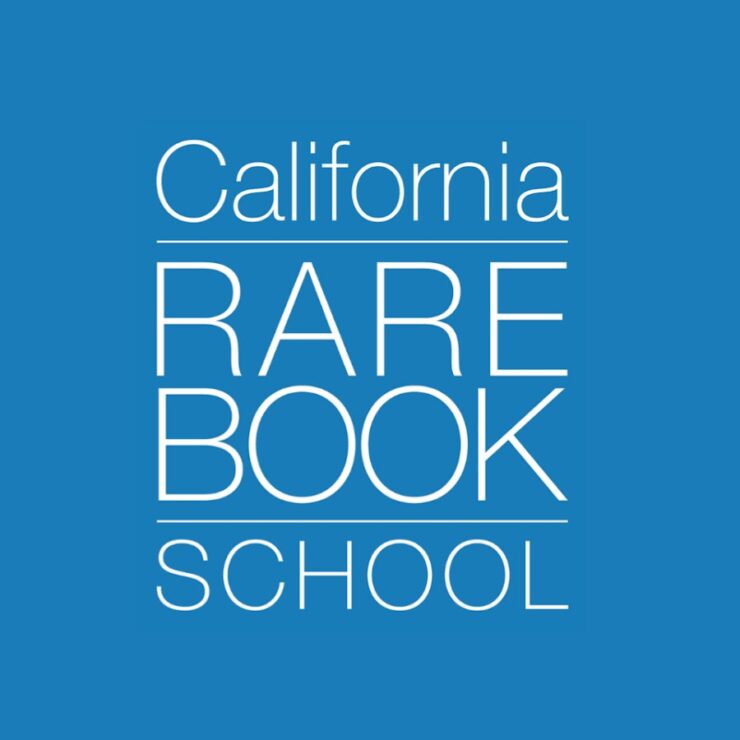
5:00 PM Pacific – Reception
Join us for a reception to welcome the students, instructors, and staff from California Rare Book School at this special Book Club member event.
California Rare Book School (CalRBS) is a continuing education program dedicated to providing the requisite knowledge and skills for professionals working in all aspects of the rare book community, and for students interested in entering the field.
Book Club colleagues and friends from CalRBS will be in the Bay Area for a series of week-long courses during the month of July.
Light refreshments and beverages will be served.
Welcome by Kevin Kosik, Book Club executive director and remarks by Robert D. Montoya, California Rare Book School director.
** Space is limited and an RSVP is required. **
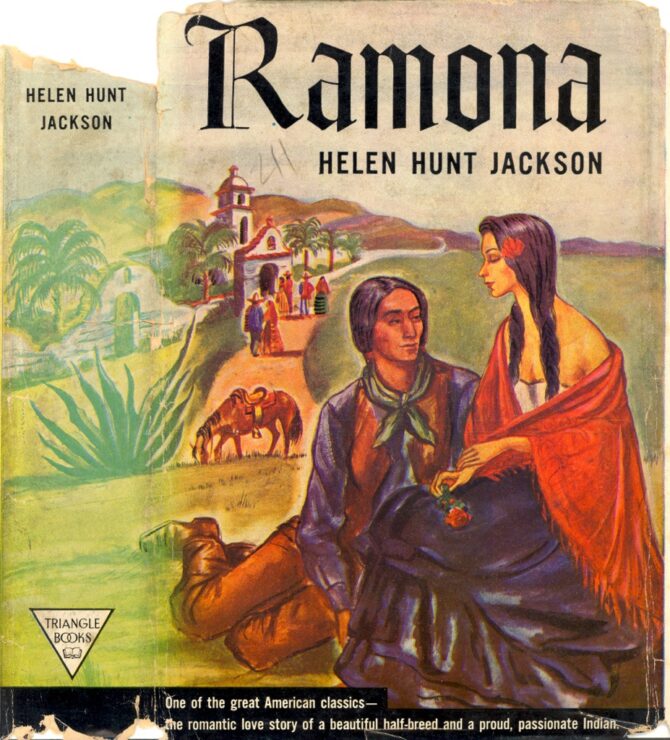
5:30 PM Pacific – Reception
6:00 PM Pacific – Program
The Blinn House | 160 N Oakland Avenue | Pasadena, California 91101
Learn how a work of historical fiction came to define how we understand southern California’s past.
Dydia DeLyser is Associate Professor of Geography at California State University, Fullerton. A native Californian, she began researching the “Ramona Myth” as an undergraduate at UCLA. Her book, “Ramona Memories: Tourism and the Shaping of Southern California” (University of Minnesota Press, 2005) is the only scholarly, book-length treatment of this important element of southern California’s past. Her research, based on obscure archival sources as well as a growing personal collection of Ramona-related tourist souvenirs, revealed that it was not the promoters and boosters who first fabulated Ramona-related attractions, but the tourists themselves who demanded that Ramona locales become visitable tourist sites, thus reshaping not only the region’s landscape, but also how generations have thought about its past.
An in-person presentation by Dydia DeLyser, author and Associate Professor of Geography at California State University, Fullerton
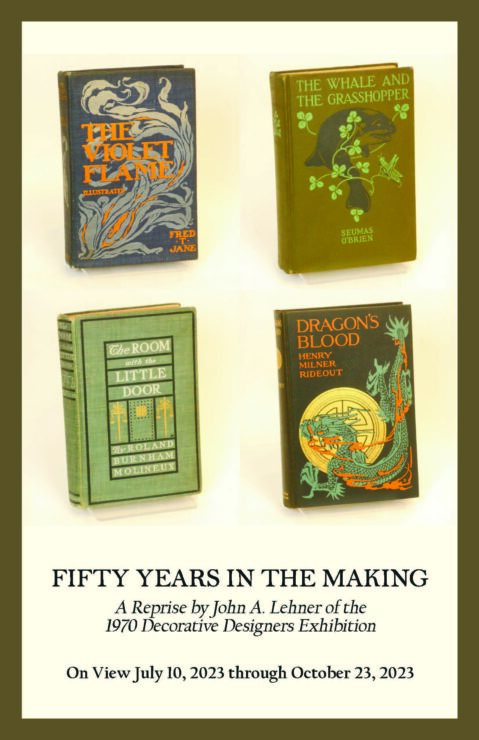
5:00 PM Pacific – Reception
6:00 PM Pacific – Program
In 1970 John A. Lehner attended The Decorative Designers Exhibition and was captivated by the originality and variety of The Decorative Designers’ work. The Decorative Designers operated as a firm, as opposed to individual artists, to present publishers with designs hand-painted onto the cloth that would be used in production, thus giving a clearer representation of the finished product. Lehner spent the next fifty years on a quest to collect all sixty-one books that were on exhibit. On display at the Book Club are all sixty-one of the books that were featured in the 1970 Decorative Designers Exhibition plus an additional thirteen books from The Decorative Designers.
The Exhibition will be on view July 10, 2023 through October 23, 2023.
Exhibition opening and remarks by John A. Lehner, book collector and retired aerospace engineer
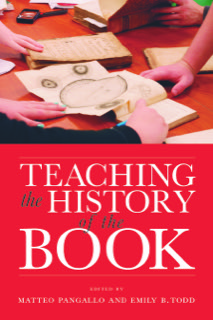
5:00 PM Pacific – Program
Teaching the History of the Book (University of Massachusetts Press) is the first collection dedicated to book history pedagogy. Edited by Matteo Pangallo and Emily Todd and featuring contributions from a diverse range of teachers, scholars, and practitioners in literature, language studies, history, book arts, library science, and archives, the collection presents a variety of methods for teaching book history both as its own subject and as an approach to other subjects. Each of the 39 chapters describes lessons, courses, and programs centered on the latest and best ways of teaching undergraduate and graduate students both about and with book history.
Beginning with chapters that apply particular pedagogical and critical theories to the book history classroom, the book then covers effective ways to organize courses devoted to book history, classroom activities that draw upon book history in other courses, and an overview of selected print and digital tools for book history classes. Contributors draw on their own experiences in the classroom to bring to life some of the rich possibilities for teaching book history in the twenty-first century.
A virtual presentation by the editors and selected contributors to Teaching the History of the Book (University of Massachusetts Press, 2023)
5:30 PM Pacific – Reception
6:00 PM Pacific – Program
In September of 1926, Albert M. Bender turned his philanthropic focus on Stanford University Library. As one of the founders of the Book Club of California, Bender needs no introduction to this audience who will also be familiar with his efforts to establish an appreciation for the book arts at Mills College, San Francisco Public Library, and other Bay Area institutions. His offer to assemble, with the co-operation of friends, “a collection of notable examples of fine printing to be placed on exhibition in the Stanford Library”, was immediately embraced by faculty, students, and library staff. This gift was the catalyst for the creation in rapid succession of a Typographical Collection, a Rare Book Room, a staff position for a Keeper of Rare Books, and, by the end of the 1930s, a Division of Special Collections to manage the library’s growing holdings of rare and distinctive materials.
Over the decades, the Stanford collections were reorganized several times and much of the provenance information about this transformative period was lost from the library catalog, with the foundational gift eventually being dispersed. This presentation explores some notable pre-Bender acquisitions, once held on a bookcase in the library director’s office, before introducing the foundational gift of “Finely Printed Books” that started, and in many ways still shapes, the collecting program at Stanford.
An in-person and virtual presentation by Benjamin Albritton, Rare Books Curator in the Department of Special Collections at Stanford Libraries
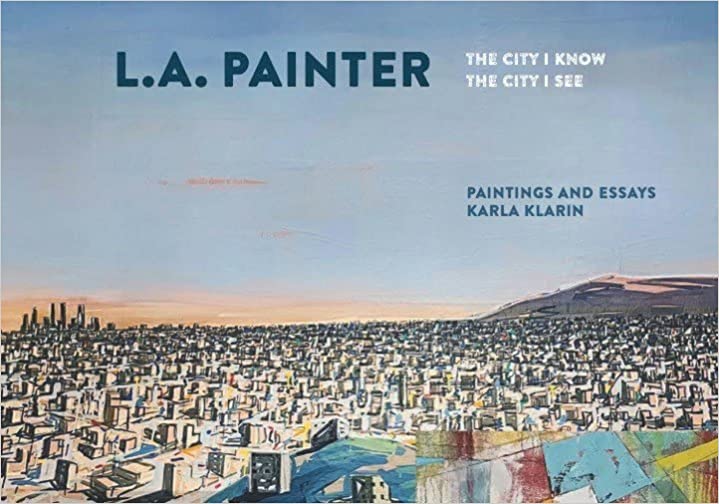
5:30 PM Pacific – Reception
6:00 PM Pacific – Program
Pasadena Heritage | The Blinn House | 160 N Oakland | Pasadena, CA 9110
L.A. Painter: The City I Know / The City I See is a full-color exploration of Karla Klarin’s abstract and modern landscapes of Los Angeles, where she was born, raised, and became one of the city’s most influential female painters. This first full monograph of her work is accompanied by ten essays that define her hometown—a city of moving parts and people that exist within a geometry of impressive expanse and beauty.
An in-person presentation by Karla Klarin, artist and author

5:30 PM Pacific – Reception
6:00 PM Pacific – Program
The Splendid Disarray of Beauty (2023) tells two intertwined stories, one of love, the other of art.
In 1910, the San Franciscans Frank Ingerson and George Dennison became permanently paired in life and love. Known among their friends and in their community as the Boys, they remained in a de facto common law marriage for 55 years.
In the eastern foothills of the Santa Cruz mountains they established the first stand-alone summers-only art school in California. The school was devoted to the lifestyle and aesthetic of the American Arts & Crafts movement, which aimed to imbue beauty into every element of day-to-day living, taking nature as a source of inspiration in doing so.
The school lasted only four years but had a significant impact on the California art scene—inspiring the creation of three other summer-only art schools in Northern California and its distinguished alumni went on to found the California Society of Etchers and the ArtCenter College of Design in LA (now in Pasadena).
In 1915 both men held positions at the Panama-Pacific International Exposition: George was on its central committee as the chief operations officer for the Palace of Horticulture and designed the landscaping for the fair. Frank was in charge of the principal decorative arts exhibitions.
The men went on to form life-long friendships with famous artists and Hollywood stars, including Olivia de Havilland, Joan Fontaine, Yehudi Menuhin, Loie Fuller, and Ruth St. Denis. Additionally, during this time the pair cultivated a glamorous life that glittered across two continents.
In this talk Richard D. Mohr introduces us to two of the most interesting and admirable men you have never met, until now.
An in-person and virtual presentation by Richard D. Mohr, author and Professor Emeritus of Philosophy and of the Classics at the University of Illinois Urbana-Champaign
5:30 PM Pacific – Reception
6:00 PM Pacific – Program
Pacific Gas and Electric was a legacy company built by innovators and visionaries, establishing California as a desirable home and economic powerhouse. In California Burning, Wall Street Journal reporter and Pulitzer finalist Katherine Blunt examines how that legacy fell apart—unraveling a long history of deadly failures in which Pacific Gas and Electric endangered millions of Northern Californians, through criminal neglect of its infrastructure. As PG&E prioritized profits and politics, power lines went unchecked—until a rusted hook purchased for 56 cents in 1921 split in two, sparking the deadliest wildfire in California history.
Beginning with PG&E’s public reckoning after the Paradise fire, Blunt chronicles the evolution of PG&E’s shareholder base, from innovators who built some of California’s first long-distance power lines to aggressive investors keen on reaping dividends. Following key players through pivotal decisions and legal battles, California Burning reveals the forces that shaped the plight of PG&E: deregulation and market-gaming led by Enron Corp., an unyielding push for renewable energy, and a swift increase in wildfire risk throughout the West, while regulators and lawmakers pushed their own agendas.
California Burning is a deeply reported, character-driven narrative, the story of a disaster expanding into a much bigger exploration of accountability. It’s an American tragedy that serves as a cautionary tale for utilities across the nation—especially as climate change makes aging infrastructure more vulnerable, with potentially fatal consequences.
An in-person and virtual presentation by Katherine Blunt, journalist and author
5:00 PM Pacific – Reception
6:00 PM Pacific – Program
The Oscar Lewis Awards were established by the Book Club of California in 1994 in honor of Oscar Lewis (1893-1992), author, historian, and club secretary. This year Richard Seibert will be recognized for his contributions to the Book Arts and Dorothy Lazard will be recognized for her contributions to Western History.
This is an in-person and virtual event.
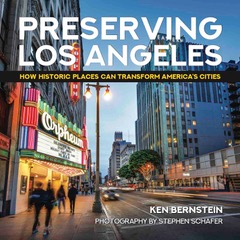
5:30 PM Pacific – Reception
6:00 PM Pacific – Program
Pasadena Heritage | The Blinn House | 160 N Oakland | Pasadena, CA 91101
Los Angeles has developed one of the most successful historic preservation programs in the nation, culminating with the completion of the nation’s most ambitious citywide survey of historic resources. Across the city, historic preservation is now transforming Los Angeles, while also pointing the way for other cities to use preservation to revitalize their neighborhoods and build community. Preserving Los Angeles: How Historic Places Can Transform America’s Cities, written by Ken Bernstein, who oversees Los Angeles’s Office of Historic Resources, tells this under-appreciated L.A. story: how historic preservation has revived neighborhoods, created a Downtown renaissance, and guided the future of the city. With more than 300 full-color images, Preserving Los Angeles is an authoritative chronicle of urban transformation, a guide for citizens and urban practitioners alike who hope to preserve the unique culture of their own cities.
An in-person presentation by Ken Bernstein, author and Principal City Planner and Manager, Office of Historic Resources, Los Angeles, California

5:30 PM Pacific – Reception
6:00 PM Pacific – Program
In 1848 when Samuel Brannan shouted “Gold! Gold! Gold from the American River!” the precious metal he was waving around was stored in a quinine bottle. Malaria, scurvy, and plague all impacted the young city of San Francisco- and many of the recommended treatments for each (cinchona bark, citrus, gin) came in beverage form. The City’s most fashionable bar, located on the site of the Transamerica Building, served a drink made with Peruvian brandy, perhaps laced with a bit of cocaine, which was described by Rudyard Kipling as “compounded of the shavings of cherub’s wings, the glory of a tropical dawn, the red clouds of sunset and the fragments of lost epics by dead masters.”
In this talk by author Camper English, we’ll start locally and think globally about diseases and conditions treated by alcohol-based medicine. Alcohol and Medicine have an inextricably intertwined history, with innovations in each altering the path of the other. The story stretches back to ancient times, when beer and wine were used to provide nutrition and hydration, and were employed as solvents for healing botanicals. Over time, alchemists distilled elixirs designed to cure all diseases, monastic apothecaries developed mystical botanical liqueurs, traveling physicians concocted dubious intoxicating nostrums, and the drinks we’re familiar with today began to take form.
In turn, scientists studied fermentation and formed the germ theory of disease, and developed an understanding of elemental gases and anesthetics. Modern cocktails like the Old-Fashioned, Gimlet, and Gin and Tonic were born as delicious remedies for diseases and discomforts. In Doctors and Distillers, cocktails and spirits expert Camper English reveals how and why the contents of our medicine and liquor cabinets were, until surprisingly recently, one and the same.
An in-person and virtual presentation by Camper English, cocktails and spirits writer and speaker
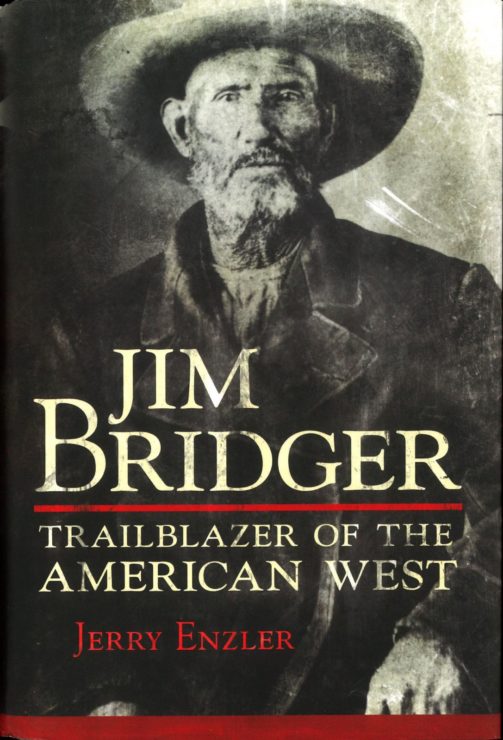
Even among iconic frontiersmen like John C. Frémont, Kit Carson, and Jedediah Smith, Jim Bridger stands out. A mountain man of the American West, straddling the fur trade era and the age of exploration, he lived the life legends are made of. His adventures are fit for remaking into the tall tales Bridger himself liked to tell.
Born in 1804 and orphaned at thirteen, Bridger made his first western foray in 1822, traveling up the Missouri River with Mike Fink and a hundred enterprising young men to trap beaver. At twenty he “discovered” the Great Salt Lake. At twenty-one he was the first to paddle the Bighorn River’s Bad Pass. At twenty-two he explored the wonders of Yellowstone. In the following years, he led trapping brigades into Black-feet territory; guided expeditions of Smithsonian scientists, topographical engineers, and army leaders; and, though he could neither read nor write, mapped the tribal boundaries for the Great Indian Treaty of 1851. Enzler charts Bridger’s path from the fort he built on the Oregon Trail to the route he blazed for Montana gold miners to avert war with Red Cloud and his Lakota coalition. Along the way he married into the Flathead, Ute, and Shoshone tribes and produced seven children.
Tapping sources uncovered in the six decades since the last documented Bridger biography, Enzler’s book fully conveys the drama and details of the larger-than-life history of the “King of the Mountain Men.” Enzler tells the definitive story of an extraordinary life.
A virtual presentation by Jerry Enzler, historian and author.
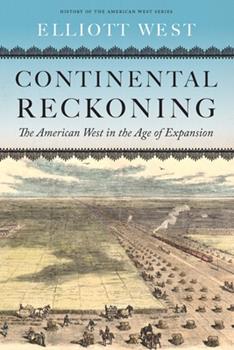
In Continental Reckoning renowned historian Elliott West presents a sweeping narrative of the American West and its vital role in the transformation of the nation. In the 1840s, by which time the United States had expanded to the Pacific, what would become the West was home to numerous vibrant Native cultures and vague claims by other nations. Thirty years later it was organized into states and territories and bound into the nation and world by an infrastructure of rails, telegraph wires, and roads and by a racial and ethnic order, with its Indigenous peoples largely dispossessed and confined to reservations.
Unprecedented exploration uncovered the West’s extraordinary resources, beginning with the discovery of gold in California within days of the United States acquiring the territory following the Mexican-American War. As those resources were developed, often by the most modern methods and through modern corporate enterprise, half of the contiguous United States was physically transformed. Continental Reckoning guides the reader through the rippling, multiplying changes wrought in the western half of the country, arguing that these changes should be given equal billing with the Civil War in this crucial transition of national life.
As the West was acquired, integrated into the nation, and made over physically and culturally, the United States shifted onto a course of accelerated economic growth, a racial reordering and redefinition of citizenship, engagement with global revolutions of science and technology, and invigorated involvement with the larger world. The creation of the West and the emergence of modern America were intimately related. Neither can be understood without the other. With masterful prose and a critical eye, West presents a fresh approach to the dawn of the American West, one of the most pivotal periods of American history.
A virtual presentation by Elliot West, historian and author.
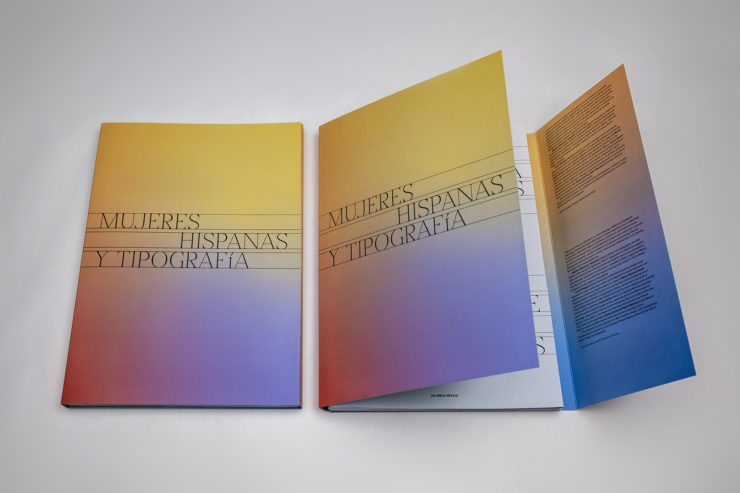
5:30 PM Pacific – Reception
6:00 PM Pacific – Program
Pasadena Heritage | The Blinn House | 160 N Oakland | Pasadena, CA 91101
Mujeres Hispanas y Tipografía (Hispanic Women and Typography) celebrates the talents and contributions of Hispanic women to design and typography. Showcasing four individual projects created by Laura Meseguer, Marina Garone, Sandra García, Dafne Martínez, and Jimena Gamio, this publication targets tangible topics, such as educational systems, endangered indigenous languages, and calligraphy.
Lavinia Lascaris and Ximena Amaya, graduates of ArtCenter Graphic Design, were chiefly responsible for the design and production of Mujeres Hispanas y Tipografía. They will be presenting their process in creating the catalog, as they endeavored to share the importance of Hispanic women’s voices and challenge the colonial and patriarchal narratives that have permeated contemporary typography and design.
An in-person and virtual presentation by Gloria Kondrup, professor, ArtCenter College of Design and director of Archetype Press, Lavinia Lascaris, exhibition and graphic designer at Hoffmitz Milken Center for Typography, and Ximena Amaya, graphic designer and Typography Fellow at Hoffmitz Milken Center for Typography.

5:30 PM Pacific – Reception
6:00 PM Pacific – Program
From air conditioners to yogurt makers, kitchen appliance manuals—with step by step directions for achieving a desired outcome—are incredible examples of early technical writing. The instruction manuals on display reflect a wide range of American consumers and provide today’s bibliophiles and graphic artists the opportunity to study the typography, designs, and color combinations of product marketing from the past.
Exhibition opening and remarks by Liz Pollock, author, collector, and proprietor of the Cook’s Bookcase
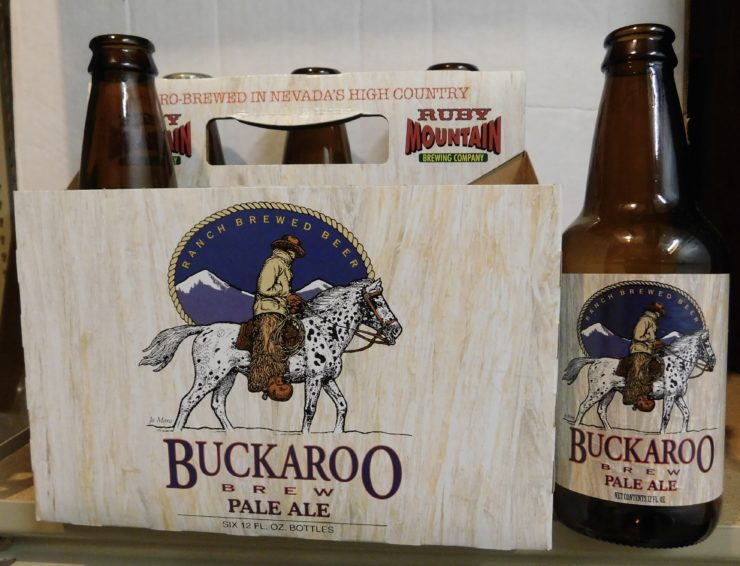
Contempo Jo Mora
Monday, March 27, 2023, 6-7:15 PM (Pacific)
| In-Person and Virtual Presentation
5:30 PM Pacific – Reception
6:00 PM Pacific – Program
The creative career of Joseph Jacinto “Jo” Mora (1876-1947) was both compelling and diverse. A painter, muralist, sculptor, building designer, cartographer, actor, set designer, cowboy, and husband and father, Mora’s art work sprang from his interests in numerous subjects including Native Americans and cowboys, the American landscape, California history and its missions, the classics of Chaucer, and Mora’s love of animals.
The artistic legacy of Jo Mora continues to evolve. Upon Mora’s passing in 1947, his son Jo Jr. lovingly worked to spread the word about his father’s creative accomplishments. That endeavor has been passed along to Peter Hiller, the Jo Mora Collection Curator.
Join Peter as he shares how Jo Mora’s art has, and continues to, find its way into popular culture and the wider world in both traditional and surprising ways.
In in-person and virtual presentation by Peter Hiller, author, historian, and Jo Mora Collection Curator for the Monterey History and Art Association
An American Genocide: The United States and the California Indian Catastrophe, 1846-1873, by Benjamin Madley, is the first full account of the government sanctioned genocide of California Indians under United States rule. It has been widely praised as groundbreaking, raising fundamental questions about how Californians and Americans think of themselves and their history.
Between 1846 and 1873, California’s Indian population plunged from perhaps 150,000 to 30,000. Madley is the first to uncover the full extent of the slaughter, the involvement of state and federal officials, indigenous resistance, who did the killing, the taxpayer dollars that supported it, and why the killings ended. This deeply researched book is a comprehensive history of an American genocide.
Madley describes pre contact California and precursors to the genocide before explaining how the Gold Rush stirred vigilante violence against California Indians. He narrates the rise of a state sanctioned killing machine and the broad societal, judicial, and political support for genocide. Many participated: vigilantes, volunteer state militiamen, U.S. Army soldiers, U.S. congressmen, California governors, and others. The state and federal governments spent at least $1,700,000 on campaigns against California Indians. Besides evaluating government officials’ culpability, Madley considers why the slaughter constituted genocide and how other possible genocides within and beyond the Americas might be investigated using the methods presented in this groundbreaking book.
A virtual presentation by Benjamin Madley, author and Associate Professor, Department of History, University of California, Los Angeles.
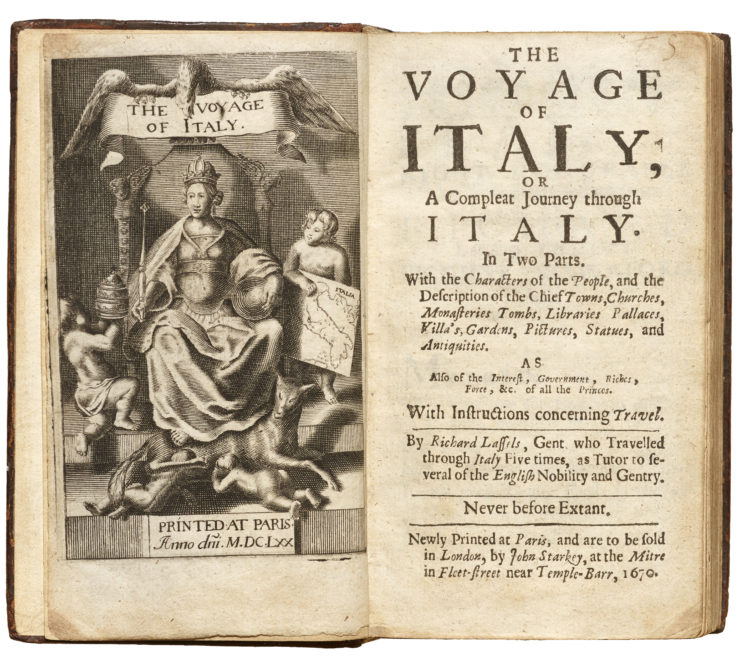
5:30 PM Pacific – Reception
6:00 PM Pacific – Program
The late 19th century has been labelled the “Baedeker Era” after the famous series of compact, bright-red travel guides published simultaneously in German, English, and French. The Baedeker guides’ trademark characteristics – systematic, impersonal, regularly updated, in a portable format packed with practical information and complementary maps – have served as a template for all subsequent guidebooks up to the present day.
But how did this specialty format develop? In a talk based on original research drawn from his personal collection spanning 1600 to 1840, Bill Newlin will trace the evolution of early travel guides, beginning with itineraries of Italy and France written by and for tutors escorting young noblemen on the Grand Tour.
Topics will include Laurence Sterne’s beguiling satire of travel guidebooks in Tristram Shandy; a series aimed the emerging middle class launched by a British naval officer veteran of the Seven Years’ War; the 25-year interregnum under Napoleon when a German aristocrat publishing in French produced a masterwork that was blatantly plagiarized by two rapacious Parisian publishers in succession; the explosion of new travel guidebooks in English spurred by the return of British tourism to the continent after the Battle of Waterloo; and the emergence in the 1820s of arguably the first professional travel writer, the redoubtable Marianna Starke.
An illustrated talk by Bill Newlin, publisher and collector of travel guides.
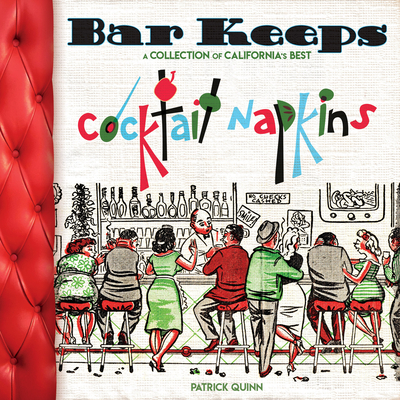
5:30 PM Pacific – Reception
6:00 PM Pacific – Program
Pasadena Heritage | The Blinn House | 160 N Oakland | Pasadena, CA 91101
Join author and napkin collector Patrick Quinn and designer J. Eric Lynxwiler for a fabulous tour of cocktail culture in the Golden State as they discuss their book Bar Keeps.
Do you know how the cocktail got its name? Ever wonder why pink elephants symbolize a pixelated good time? Or have you asked yourself why napkins pictured women rolling naked in champagne glasses? Our presenters will answer those and other startling questions and provide a look at how bars and cocktail napkins bonded.
Not into drinking? Lots of people aren’t, but who doesn’t want a visual treat, a good laugh, and a look back at the Golden State in its golden age? Quinn guides a rollicking road trip with stops in San Diego, Los Angeles, San Francisco, Oakland, Sacramento, Bakersfield, and points between—all with cocktail napkins to savor.
If you’ve had a tropical extravaganza at Trader Vic’s in Oakland, watched the dancers at the Chinese Sky Room in San Francisco’s Chinatown, downed a G&T at Joe DiMaggio’s Grotto on Fisherman’s Wharf, sat with stars at the Hollywood Palladium, had a hot toddy at Fred Harvey’s in LA’s Union Station, or just swooned to Rudy de la Mor singing at Little Shrimp in Laguna—the glow of riotous evenings will all come back to you as the author and designer discuss Bar Keeps.
An in-person presentation by Patrick Quinn, production designer, author, and collector, and J. Eric Lynxwiler, author and designer.
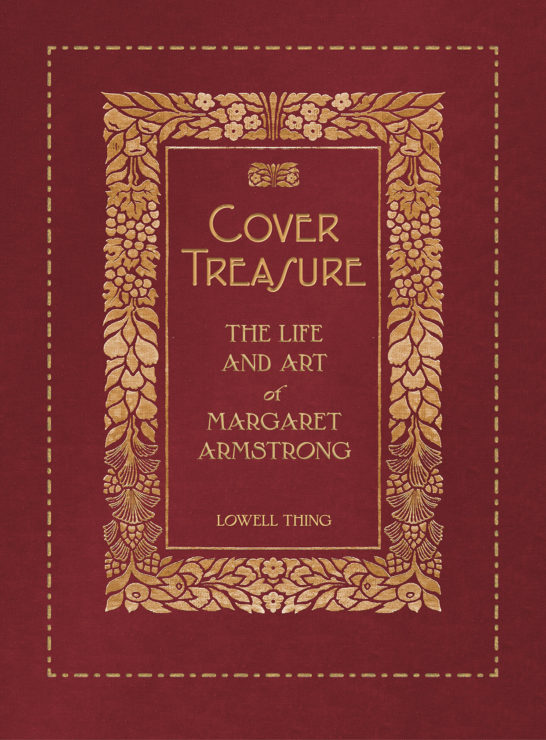
Lowell Thing, author of “Cover Treasure – The Life and Art of Margaret Armstrong,” describes how, beginning on the lawn of a library book sale, he began to discover and collect books from the “Golden Age” of American trade publishers’ decorated cloth bindings (1890-1915), especially those of one of its best-known artists. Over the next forty years, he was able to assemble almost all of Margaret Armstrong’s known designs and some that were unknown by the artist’s first discoverers, Charles Gullans and John Espey. In this talk, Lowell Thing shows highlights of his collection as well as previously unpublished photos of the artist and her family.
An illustrated talk by Lowell Thing, author and collector.
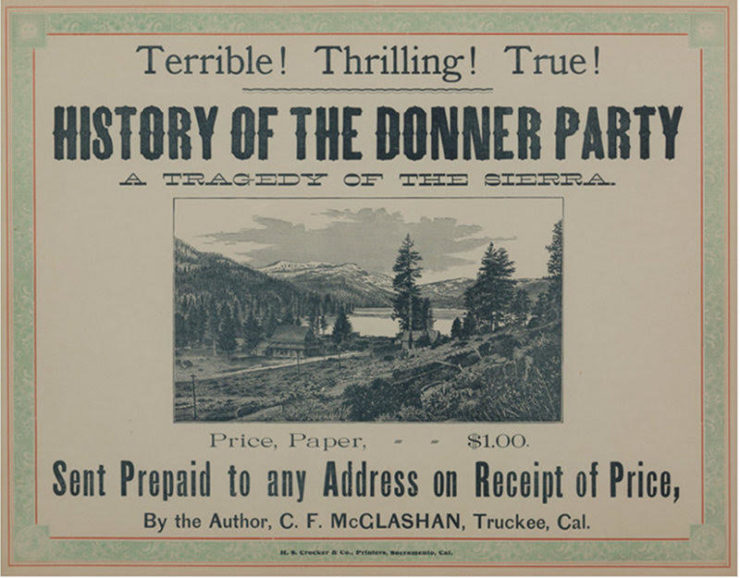
5:30 PM Pacific – Reception
6:00 PM Pacific – Program
The Philosophical Research Society | 3910 Los Feliz Blvd | Los Angeles, CA 90027
In the history of Westward Expansion, the Donner Party stands alone. Their story has been the inspiration for a bounty of books and pamphlets, both serious and some not so much. The literary history of the Donner Party runs the gamut from histories, biographies, fiction, epic poems, plays and even a cookbook!
After more than fifty years of collecting all things Donner Party, amateur historian and author Jim Hier joins us to share items from his collection and discuss the literary legacy of the Donner Party.
An illustrated talk by Jim Hier, historian and author.
Print Your Own Broadside Affair
Monday, February 6, 2023, 6-7:15 PM (Pacific)
| In-Person Event
5:30 PM Pacific – Reception
6:00 PM Pacific – Program
Letterpress print your own broadside on the Book Club’s Columbian hand press with Li Jiang, Lemoncheese Press. A limited number of broadsides will be printed.
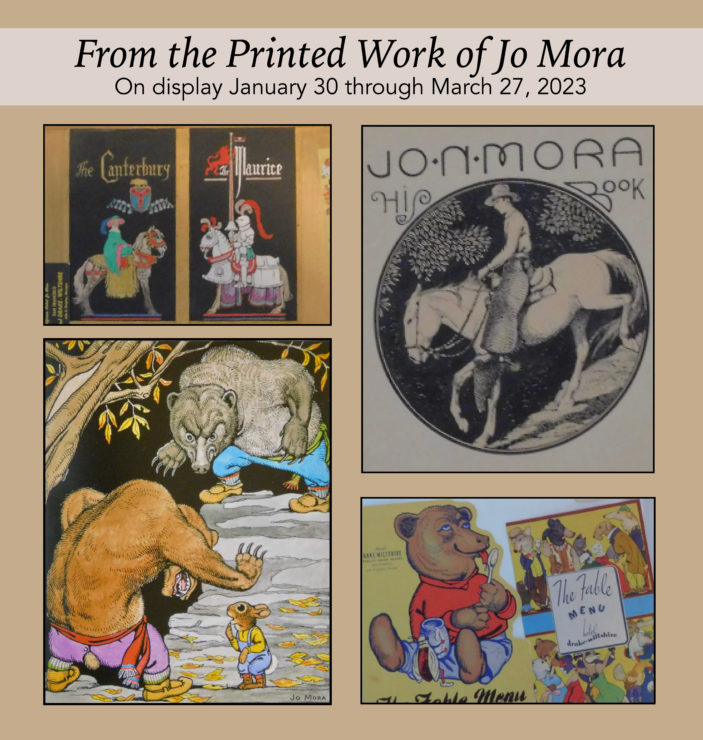
5:30 PM Pacific – Reception
6:00 PM Pacific – Program
The creative career of Joseph Jacinto “Jo” Mora (1876-1947) was both compelling and diverse. In addition to being a painter, muralist, sculptor, building designer, cartographer, actor, set designer, cowboy, and husband and father, Mora was very involved with work on paper. It is his work as an illustrator, cartoonist, printer, and author that so closely parallels the work of the Book Club of California.
Mora’s art work sprang from his interests in numerous subjects including Native Americans and cowboys, the American landscape, California history and its missions, the classics of Chaucer, and Mora’s love of animals. All of these subjects, including the Christmas holiday, found expression in his work and his lasting creative efforts can be seen throughout California and the West.
Exhibition opening and remarks by Peter Hiller, author, historian, and Jo Mora Collection Curator for the Monterey History and Art Association.
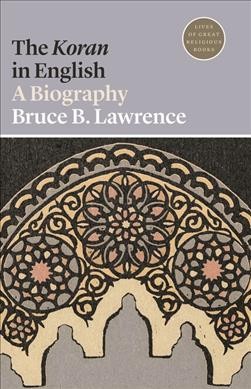
For millions of Muslims, the Qur’an is sacred only in the original Arabic. Revealed to an Arab merchant Muhammad in 7th century Arabia, it calls itself “an Arabic Qur’an”. At once lyrical and adamantine, it resists translation into any other language. Yet scholars have tried to cross the barrier, rendering it into numerous classical and modern languages, including English.
The most adventuresome 20th century translator, Yusuf ‘Ali, a British civil servant in India, even strove to make English itself an Islamic language, while a recent American voyager—at once surfer and artist—Sandow Birk created an American Qur’an in the 21st century, post 9/11.
In this talk, Bruce Bennett Lawrence will connect to many translators but he especially prizes the link between Yusuf Ali and Sandow Birk. While Yusuf Ali wants to make English an Islamic language, Sandow Birk hopes to make the Koran an American text/resource, a compass for post-9/11 Americans.
A virtual presentation by Bruce Bennett Lawrence, author, Marcus Family Humanities Professor of Religion Emeritus, Duke University, and adjunct professor at the Alliance of Civilizations Institute, Ibn Haldun University, Istanbul.
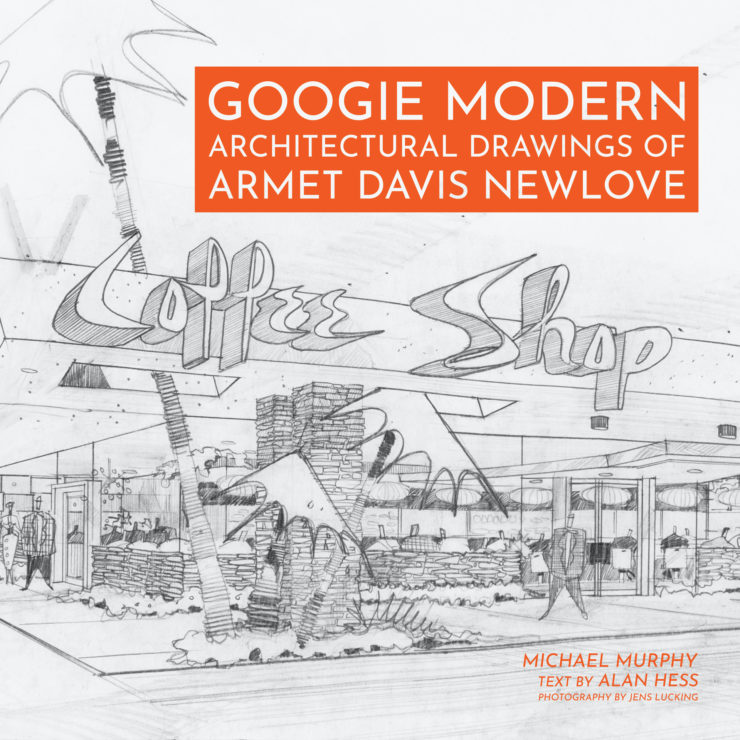
5:30 PM Pacific – Reception
6:00 PM Pacific – Program
The Blinn House | 160 N Oakland Avenue | Pasadena, California 91101
In Googie Modern: Architectural Drawings of Armet Davis Newlove, authors Michael Murphy and Alan Hess take readers inside the private archives of the forward-thinking trio dubbed the “fathers of Googie.” Inspiring not just artists and filmmakers but the public at large, their futuristic coffee shops and restaurants made dining out a space-age experience, just as man was ready to walk on the moon. Armet Davis Newlove’s architecture captured the optimistic and forward-thinking mood in post-war America and set the bar for what would become Mid-Century Modern style. The firm’s high-concept designs shaped Southern California and then took off across the American landscape, giving the US innovative, practical, and gorgeous monuments of everyday life. Each remarkable rendering demonstrates the passion and precision that went into every Armet Davis Newlove creation. Googie Modern is itself a monument to the excitement and optimism that once lined the streets of mid-century America.
An in-person presentation by Michael Murphy, author, art director, and design professional, and Alan Hess, architect, author, and historian.
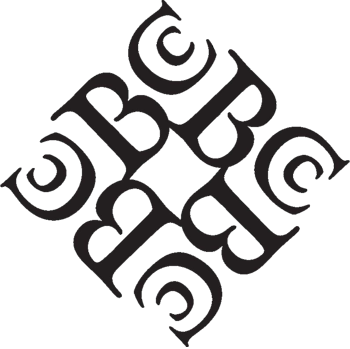




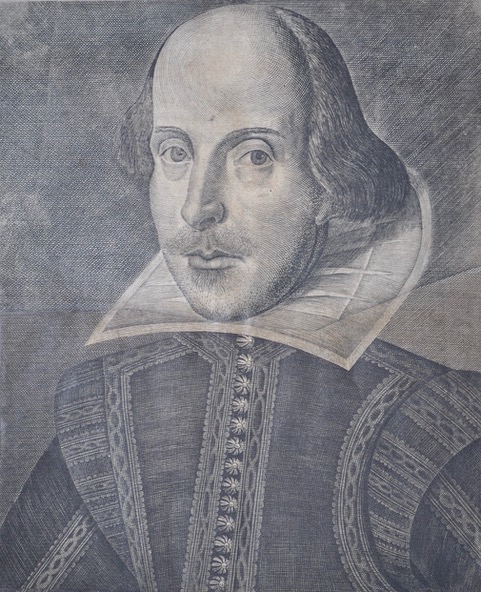
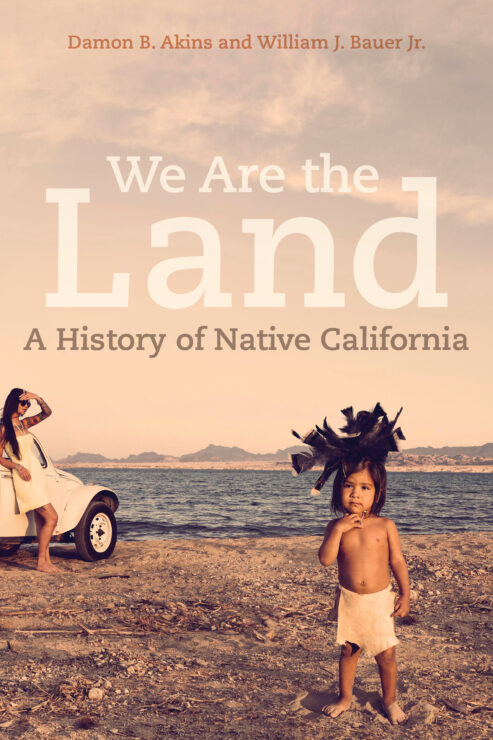
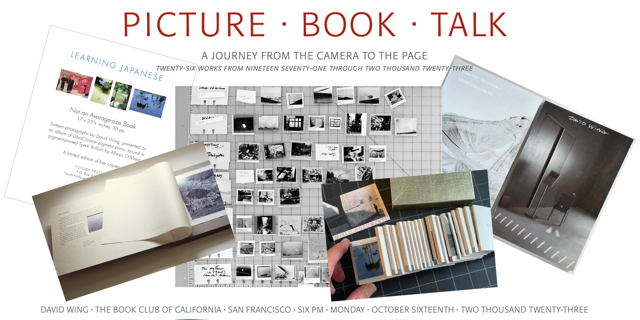
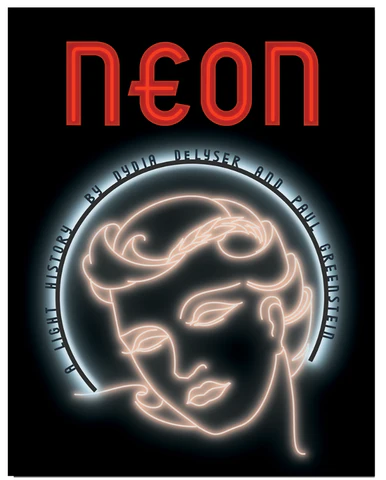
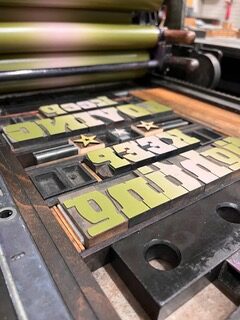
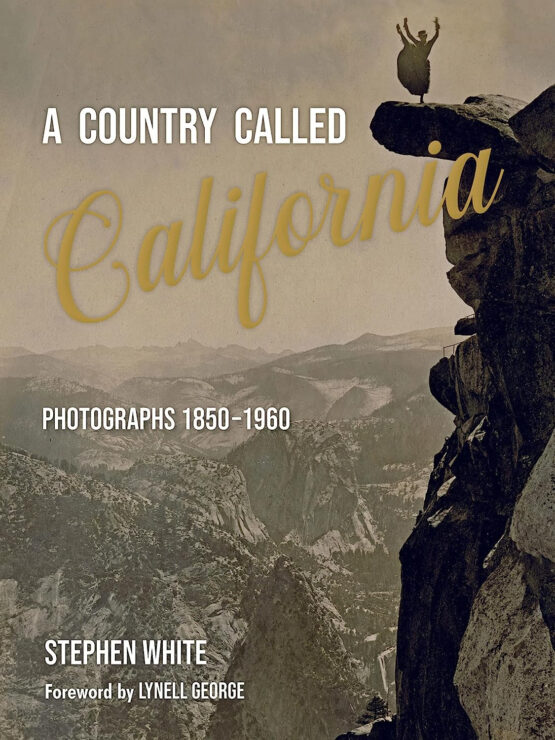
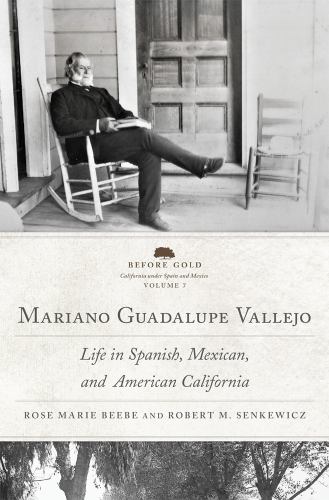
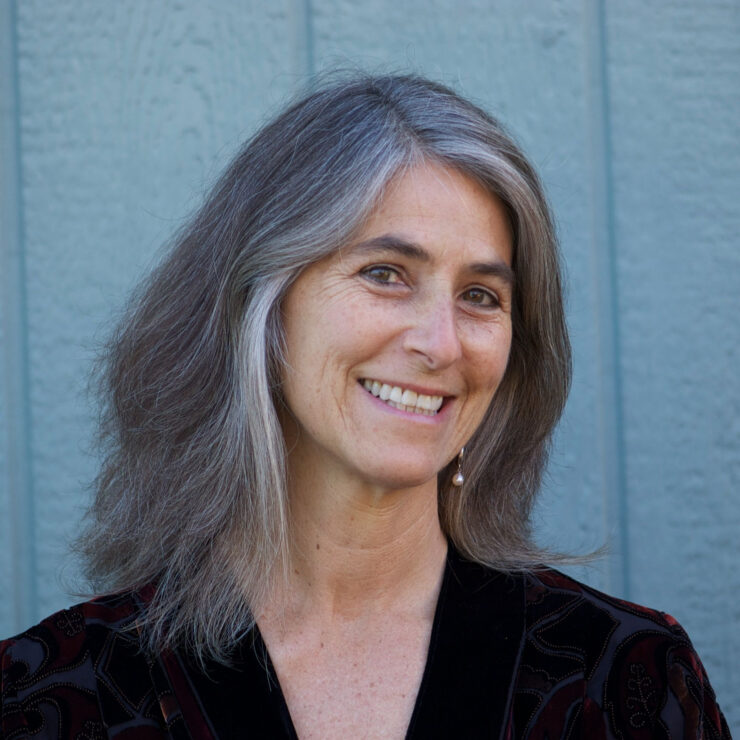
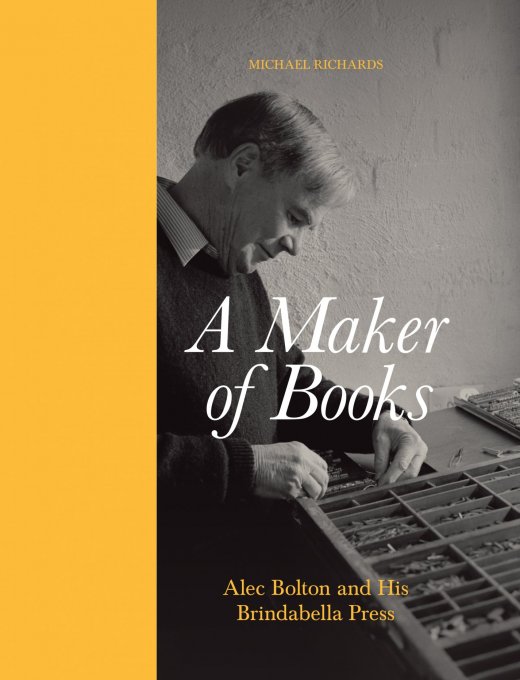
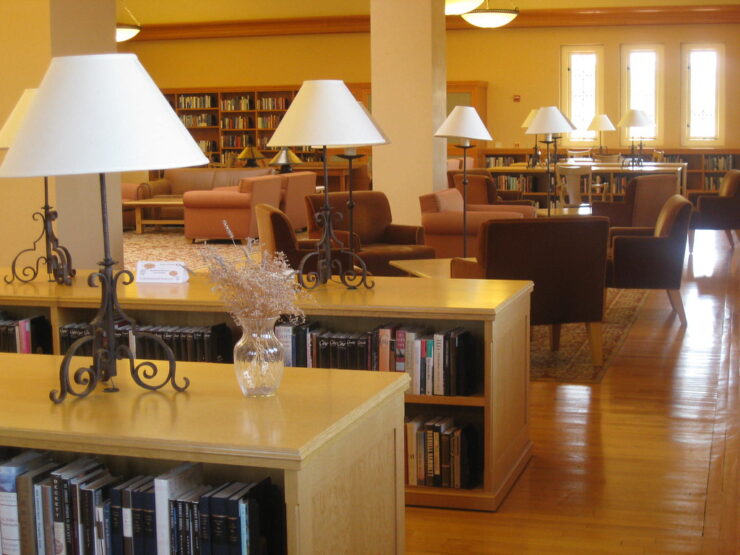
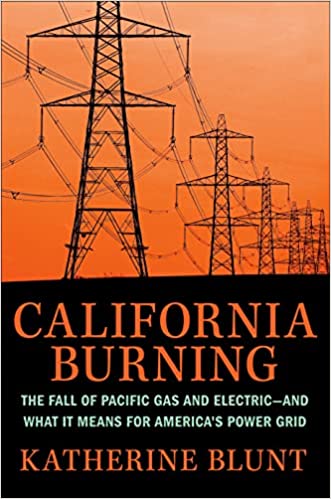
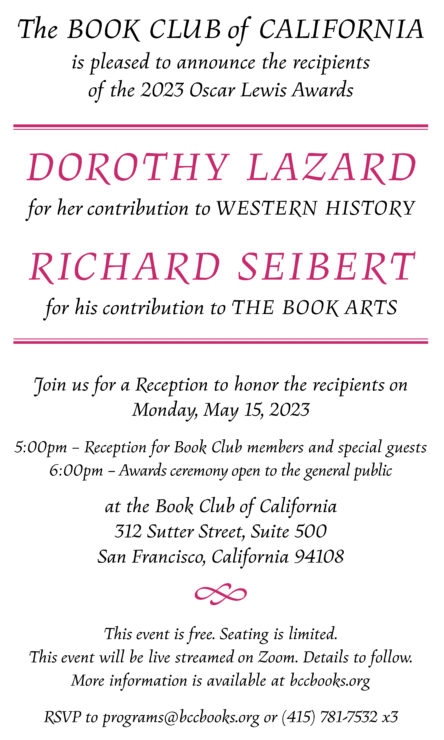
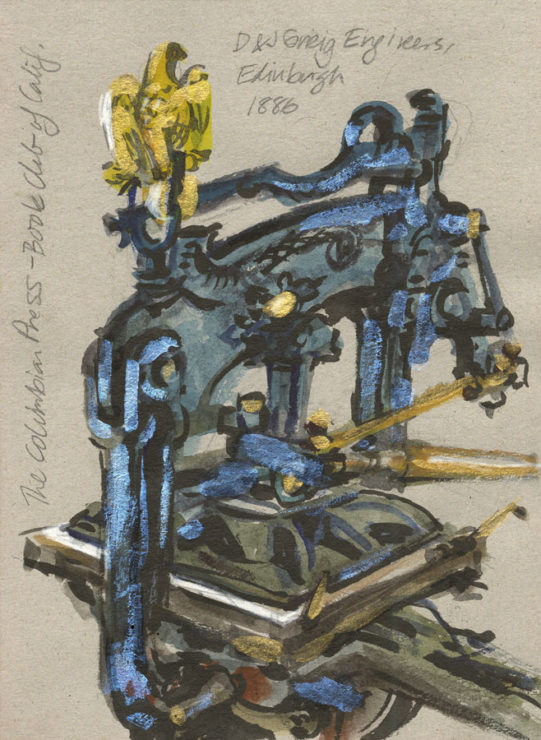


 312 Sutter Street, Suite 500 • San Francisco, California 94108 • t. 415 781 7532 •
312 Sutter Street, Suite 500 • San Francisco, California 94108 • t. 415 781 7532 • 